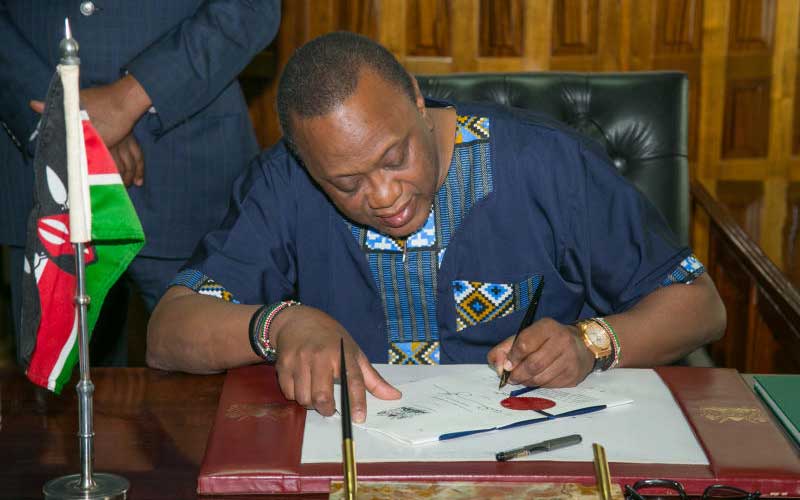×
The Standard e-Paper
Stay Informed, Even Offline

President Uhuru Kenyatta’s assent to the Appropriation Bill adds complexity to the controversies arising from the disputed 2019/20 national budget.
Problems became evident when the National Assembly and the Senate failed to agree on the division of revenue between the national and county governments.